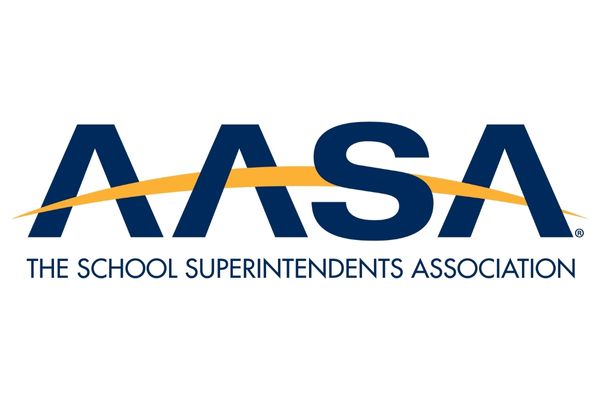AASA-Led Legislation Introduced to Bolster Student Mental Health Services Nationwide
March 21, 2024
FOR IMMEDIATE RELEASE
Contact:
James Minichello
703-774-6953
jminichello@aasa.org
Alexandria, Va. – March 21, 2024 – AASA, The School Superintendents Association, is proud to endorse a U.S. Senate bill introduced today aimed at widening access to competitive mental health grants on behalf of high-need, low-capacity school districts and students in geographically isolated areas.
Introduced by U.S. Sens. John Cornyn, Thom Tillis, Maggie Hassan, Jon Tester and Kyrsten Sinema, the “Creating Access and Resources in Education (CARE) for Student Mental Health Act’’ makes key improvements to the U.S. Department of Education’s mental health grant programs and ensures districts that are historically disadvantaged in applying for federal grants, such as rural and hard-to-reach districts, have more opportunities to access resources and hire critical mental health personnel.
“Today marks a significant step forward on our path to better support the mental and behavioral health of our nation’s school students, particularly those residing in rural and remote areas.”
The bill comes at a time when one in five children have a diagnosable mental or behavioral health disorder and, by 7th grade, approximately 40% of students will experience symptoms of depression and/or anxiety. Due in part to workforce shortages, most students do not receive the mental health care they require and the majority of those who do receive these services at school.
“Today marks a significant step forward on our path to better support the mental and behavioral health of our nation’s school students, particularly those residing in rural and remote areas.” said David R. Schuler, executive director, AASA. “I commend the Senate, AASA’s advocacy team and our partners for working together to advance this bill which will assist historically disadvantaged districts in building a pipeline of mental health personnel and providing additional financial incentives for these hard-to-reach areas. We thank Senators Cornyn, Tillis, Hassan, Tester, and Sinema for their leadership and for their commitment to improving the mental health of students in public schools.”
The bill will improve upon the two U.S. Department of Education mental health programs funded in in the Bipartisan Safer Communities Act by ensuring more equitable access to funds.
The bill:
- Clarifies the distinction, purpose, and allowable activities of each grant to help eligible entities quickly determine which grant best meets their needs.
- Requires the Department to improve notification and technical assistance for potential grantees which will enable more districts with limited administrative capacity to apply and compete for these federal grants.
- Authorizes and streamlines the Strengthening the Pipeline of School-Based Mental Health Services Providers grant (formerly named MHSP) which supports
partnerships between Institutions of Higher Education and LEAs to increase the number of properly trained school based mental health service professionals.
- Authorizes the School Based Mental Health Services Program (SBMH) that assists high need LEAs to recruit, hire, and retain school based mental health personnel for students to remain healthy, engaged, and safe at school.
In addition to AASA and our co-lead the National Association of School Psychologists, other organizations backing the CARE for Student Mental Health Act include: American Atheists, American Federation of School Administrators, American Foundation for Suicide Prevention, American Music Therapy Association, American Occupational Therapy Association, American Psychological Association, American School Health Association, Association of Educational Service Agencies , Association of School Business Officials International (ASBO), CASEL, Children and Adults with Attention Deficit/Hyperactivity Disorder, Children and Screens: Institute of Digital Media and Child Development, Committee for Children, Common Sense Media, Council for Exceptional Children, Council of Administrators of Special Education, Eating Disorders Coalition for Research, Policy, & Action, EDGE Consulting Partners, First Focus, GLSEN, Healthy Schools Campaign, Inseparable, MENTOR, National Association of Elementary School Principals, National Association of Federally Impacted Schools (NAFIS), National Association of Pediatric Nurse Practitioners, National Association of Secondary School Principals, National Association of School Nurses, National Association of State Boards of Education, National Black Justice Coalition, National Center for Learning Disabilities, National Federation of Families, National PTA, National Rural Education Association, National Rural Education Association Coalition, National School Boards Association, Sandy Hook Promise, School Social Work Association of America, School-Based Health Alliance, SchoolHouse Connection, The Education Trust, The Carter Center, The Kennedy Forum, Young Women’s Project
For more information, contact Sasha Pudelski, AASA director of advocacy, at spudelski@aasa.org.
###
About AASA
AASA, The School Superintendents Association, founded in 1865, is the professional organization for more than 13,000 educational leaders in the United States and throughout the world. AASA’s mission is to support and develop effective school system leaders who are dedicated to equitable access for all students to the highest quality public education. For more information, visit www.aasa.org.

